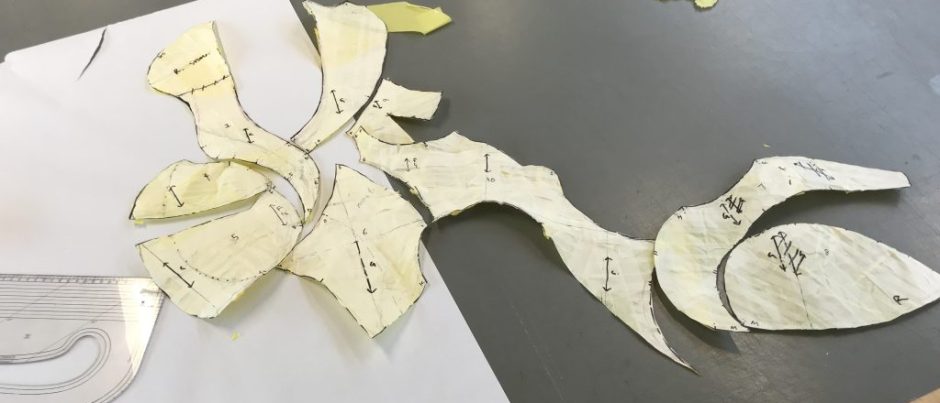ARP 2024-5
Ethical Action Plan
Name of practitioner-researcher: Florence Meredith
| What is your project focus? Understanding why students procrastinate in starting practical work, or projects with physical outcomes, and developing ways to support them in avoiding needless stress, unfinished work, missed deadlines, disappointment, and material waste, towards more sustainable and fulfilling working practices. Within my role as a specialist costume technician, I encounter the same issue again and again. Students often leave the realisation of their costumes until the last moment, even if it is a key part of their curricular outcome, coming to myself and my colleagues in a panic a day or two before a show deadline. This leads to underdeveloped/unfinished work, stress, the students missing out on practical creative processes in which quality critical thinking could be taking place, which all feed into existing inequalities in the attainment gap within UAL. This not only compromises the quality of the outcome, but often also leads to the last minute purchase of garments from amazon, or the wasting of materials that are bought in large quantities but not tested ahead of time, and therefore go to waste. This issue within the learning environment mirrors and feeds into the existing issues within the wider industry of costume, in which hierarchies that do not prioritise costume dictate the last minute changing/purchasing of low- cost fast delivery items and garments. This not only makes it a climate justice issue, but a feminist issue, and a decolonial issue. Costume practice is often undervalued, seen as insignificant, and possible to do with little or no skill, an attitude stemming from the western European, colonial, patriarchal undervaluing of the the skills required in garment production (and therefore costume), and the modern disassociation of this with real peoples time, skills, and hands in part due to the excessive availability of clothing at low cost. |
What are you going to read about? Research methods: Interviews, art-based action research Subject: Creativity and procrastination, understanding and trusting a creative process, tools for moving through stuck-ness and procrastination, time-planning/ project planning, costume industry sustainable practices, making the space, and technical staff, approachable, how hierarchies and lack of appreciation affect the costume industry sustainable costume working practices and timeframes (environmental). Post covid effect on procrastination – social media, attention etc? ADHD, dyslexia, how neurodiversity affects planning, how this can be supported better, creative research/ action research and ethics. |
| What action are you going to take in your teaching practice? Making small interventions, or providing tools to help students through a project in real time, as part of the action research cycle. This might include: The production of accessible time-planning templates and creative time planning approaches Communicating mini-deadline reminders Taking action to improve self-confidence (both in the space, with the technical staff, and in their own abilities) Challenging perfectionist tendencies through short activities (modelling creative processes/sharing examples of trial and error in a materialisation process) |
| Who will be involved and how? Myself, as an observer and participant through art- based action research methods. A small group of BA (Hons) P:DP students who volunteer to be interviewed, provided with these tools, and with the collection of data through art based action research methods A wider cohort could be observed, without interview, depending on the intervention design. |
| What are the health & safety concerns, and how will you prepare for them? The potential additional stress caused to the students involved. I will make sure they are fully informed of the whole process and the time commitment involved. I will make it very clear that participation is voluntary, and remind them of this regularly. I will also make it clear that they may withdraw consent and participation at any time. |
| How will you protect the data of those involved? Anonymisation of participants Only collecting necessary personal data Disposing of data as soon as it is not required Storing data in a secure format (locked in a physical drawer, or within a secure, private, password protected digital folder) |
| How will you work with your participants in an ethical way? Transparency of my own positionality, values, attitudes, motives Voluntary involvement throughout, which can be can be withdrawn at any stage making this very clear and communicating it regularly Asking for consent to use of photographs, names, and/or artworks produced Safe storage and archiving of consent forms and data until it is no longer needed and can be disposed of safely Working with students who are not my tutee’s so that they are not influenced by this, or feel obliged to take partInforming their tutor of their participation (if the student agrees) |
